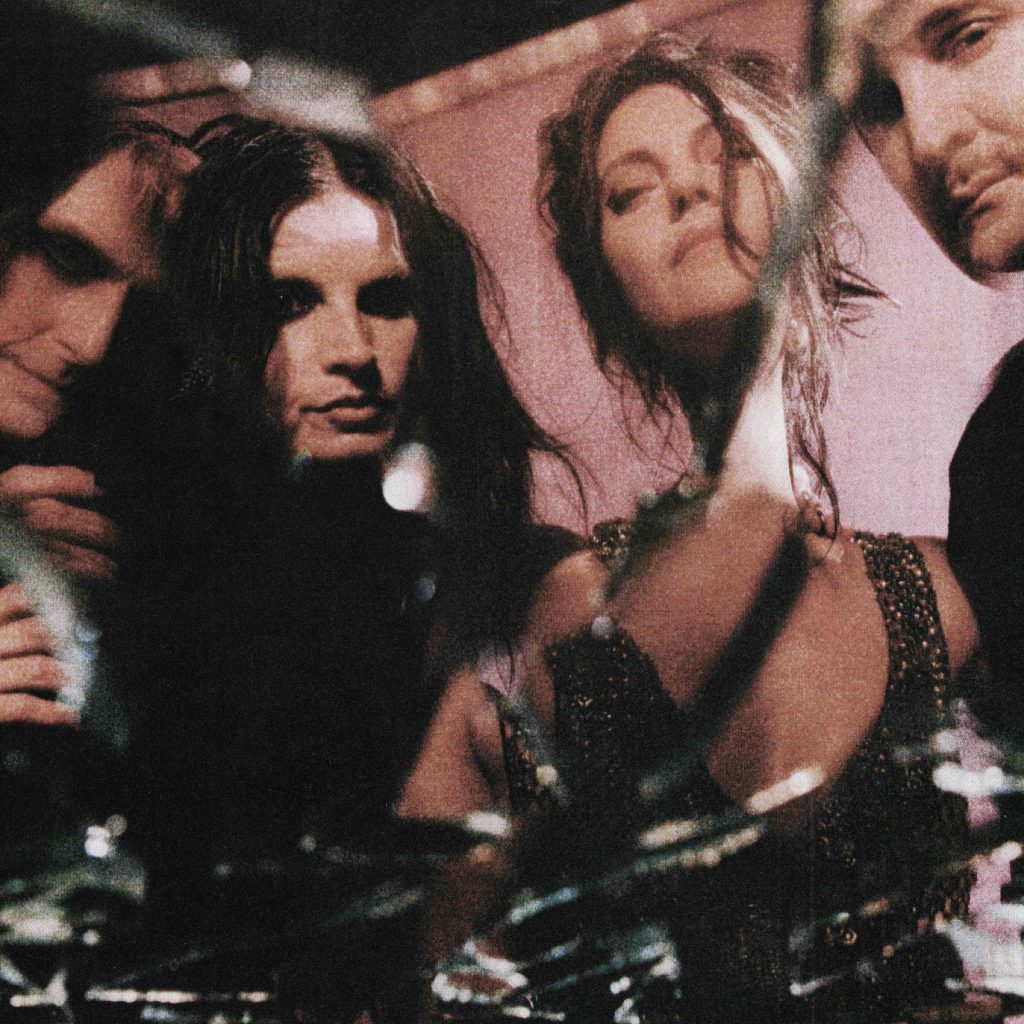ALBUM REVIEW: Sharon Van Etten & The Attachment Theory Reach for New Heights

Adopting a fresh moniker – Sharon Van Etten & The Attachment Theory – Van Etten and company embrace their most collaborative venture, crossing the lush sonics of 2019’s Remind Me Tomorrow and the sober confessionalism of 2022’s We’ve Been Going About This All Wrong. Teeny Lieberson on synths, piano, and guitar is joined by previous contributors Jorge Balbi (drums) and Devra Hoff (bass), the band clearly operating with a heightened sense of freedom and creative input. Van Etten discovers a new vocal plateau, reveling in versatility. In-demand producer Marta Salogni brings an expansive and meticulously implemented aesthetic to the work at hand.
“Who wants to live forever?” Van Etten asks on the opening track, implying, on one hand, wouldn’t it be super? – on the other hand, reminding us that immortality might not be as great as it sounds. The mix features some of the more riveting interplays in the Van Etten oeuvre, including throbbing bass lines, splashy drums, and an ’80s-esque synth progression. Van Etten infuses her signature mercuriality with a sense of distance or objectivity, sounding paradoxically volatile and equanimous. Toward the end of the track, vocals and busy instrumentation mesh and are juxtaposed, resulting in a sense of heightened drama.
On “Afterlife”, Van Etten poses questions regarding earthly love and how it might translate into the afterlife. Lieberson’s intricate keyboard part contrasts effectively with her sustained vocal lines. “Southern Life” shows Van Etten at her gothy best, moving between narcotized reportage and celestial laments (“All my life I closed my eyes”, My hands are shaking as a mother / trying to raise her son right”).
“Idiot Box” is built around a bubbly guitar riff that blends the anthemic and the garage-y. Van Etten delivers a pop melody while never compromising her diva status (think Kate Bush meets Melissa Etheridge circa Yes I Am with a touch of the punk-operatic a la Angel Olsen). On “Trouble,” Van Etten similarly unfolds a pop melody while the band weaves a closely knit accompaniment, led by Hoff’s nomadic bass part. The song points to the illusions we carry regarding romance, self, and the world (“All the bubbles that we live in / … all the lies we’ve told ourselves”).
“I Can’t Imagine” stretches the project, veering in a funkier direction, a bass-heavy gestalt that would get a smile from Let’s Dance-era David Bowie. “Somethin’ Ain’t Right,” like “Trouble,” spotlights Hoff’s nimbleness on bass (as well as Lieberson’s dexterity on keyboards). Van Etten unfurls one of her more memorable hooks, the piece club-ready yet message-anchored, retro yet modish, celebratory yet interrogative (“Do you believe in compassion for enemies? / Who is to blame when it falls to decay?”).
Sultry closing track “I Want You Here” addresses the way in which intimacy thrives when people remain connected during high and low times alike (although the latter requires a bit more effort). Van Etten is seamlessly assertive, vulnerable, and poised. In this way, she concludes an album that captures her band at its most expressive and her at her most flexible, alternately immersed in her experience and bequeathing wisdom from a detached perspective. There may still be demons dancing around or even inside Van Etten, but they no longer call the shots.
Sharon Van Etten & The Attachment Theory is out Feb. 7 via Jagjaguwar Records.


